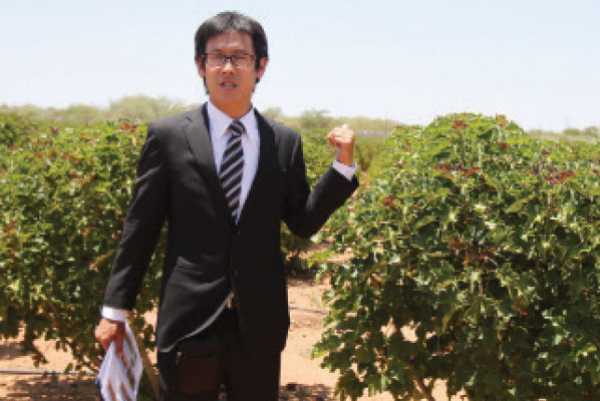Japan, Botswana development cooperation solid
Japan has been assisting Botswana in its development. This week the embassy of Japan took members of the media on a tour to update them on its development cooperation with Botswana.
Botswana Guardian takes a look at Japan’s major ongoing and past economic cooperation projects and schemes in the country.
Botswana-Japan Jatropha Research project
In order to combat climate change, government of Botswana has been searching for alternative sources of energy to minimise their current reliance on fossil fuels.
In this regard, Japan has been assisting in a project towards the future commercial production of biodiesel in Botswana, which will not only increase Botswana’s energy security, but will do so in an environmentally sustainable manner. If successful, the production of biodiesel from Jatropha will reduce the import bill of petroleum products while contributing to the economy by creating more job opportunities.
At the Botswana College of Agriculture farms, work is ongoing. The tree has started flowering, with a few bearing fruits. Japanese expert Dr. Yudai Ishimoto explained that they have adopted the drip irrigation system. He said that last year the leaves had dropped because of low temperatures. Botswana’s temperatures range from zero to 40 degrees celcius while Jatropha tree requires a temperature range of 20 to 30 degrees celcius.
At one point in August, most ground parts were lost. Before the cold season, they undertook wrapping, pruning, watering, removal of leaves and foliar application of succharide.
The problem continued after the cold season as there was a hailstorm, which affected the plants. On a positive note, this year fruits are increasing, with 10 percent of trees with fruits from one of the two fields. “Our target is 100kg of seeds from 1 hectare per season,” he said.
The US$3 million project that started in 2012 is being implemented co-jointly by Japan International Cooperation Agency, Ministry of Minerals, Energy and Water Resources, Departments of Agricultural Research, University of Botswana, Universities of Tottori and Ryukyus University from Japan and RIKEN (Japan’s largest and most comprehensive research organisation.)
Project for enhancing National Forest Monitoring System
The national forest monitoring system is designed to provide reliable forest resource information for sustainable forest resource management.
The purpose of the project is to regularly update the state of the country’s forests through the use of national forest monitoring system. The expected outputs include development of a nationwide forest distribution map by using remote sensing technology, establishment of a methodology to create a national forestry inventory system, construction of a forest GIS database system and development of a national forest monitoring plan.
The Department of Forestry and Range Resources is currently implementing the project with assistance from JICA. Experts from a consortium of Oriental Consultants and the Japan Forest Technology Association have been dispatched to Botswana through JICA. The project started in July 2013 and is expected to take four years.
Implementation of the digital migration project
As of 2013, Botswana announced the adoption of Integrated Services Digital Broadcasting-Terrestrial for its digital broadcasting standard.
ISDB-T is one of the broadcasting standards originally developed in Japan and modified in Brazil. One of the features of that standard is that it is capable of transmitting broadcasting signals to fixed and mobile receivers from one transmitter.
In order to assist Botswana’s smooth migration from analogue to digital for terrestrial broadcasting, JICA expects were dispatched to the Mass Media Complex in September 2014 to assist the Department of Broadcasting Services and Botswana Communications Regulatory Authority in terms of technology, legislation, and public relations.
Government had committed successive budget provision of P130 million to enable implementation of digital television.
Grant assistance for grassroots human security projects
Japan’s Grant for Grassroots Human Security Projects supports projects addressing social problems aiming at community development at grassroots level.
This is done through grants of a maximum of 10 million Japanese Yen (P900, 000), given directly from non-profit organisations. So far, Japan has extended the grants to more than 40 organisations in Botswana, especially in areas of education and skills development and empowerment of vulnerable groups such as women, children and the disabled.
The past projects involved for example, provision of facilities and equipment to brigades as well as the electrification of primary schools and construction of pre-schools.
JICA training
Japan, through JICA promotes transfer of knowledge and technology to developing countries through provision of training courses for government employees.
Every year, government employees of Botswana are invited to around 35 of these training courses, the areas of which cover private sector development, regional development and environmental management.





